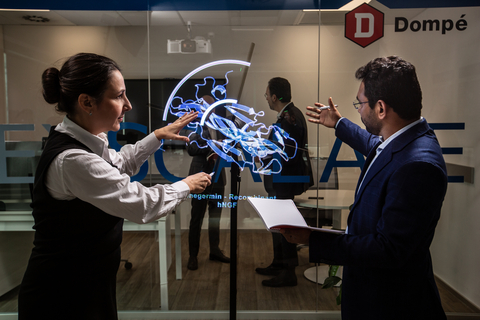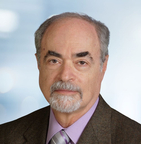Nature Conferences has convened a meeting of leading global scientists to discuss the state of the art and future lines of research on neurotrophins.
- Neurotrophins are proteins involved in the development, function and survival of neurons discovered 70 years ago by Italian Nobel Rita Levi Montalcini with the identification of Nerve Growth Factor (NGF).
- The first NGF-based therapy was approved by the U.S. Food and Drug Administration (FDA) in 2018 to treat a rare ocular disorder and today in Rome researchers are discussing the potential of neurotrophins including NGF, Brain Derived Neurotrophic Factor (BDNF) and other molecules for the treatment of various eye and brain disorders, paving the way for innovative therapeutic strategies for unmet patient needs.
- Potential indications include: corneal neurosensorial abnormalities, retinal diseases, optic neuropathies, traumatic brain damage, axon regeneration, dementia, Alzheimer’s and Parkinson’s disease.
- Clinical studies aimed at expanding the research and knowledge of potential applications of NGF in both eye and brain disorders are being evaluated for launch in 2025.
ROME--(BUSINESS WIRE)-- Nature Conferences has convened a meeting of leading global scientists to discuss the state of the art and future lines of research on neurotrophins. The event, From the Eye to the Brain, will focus on the potential new applications of neurotrophins in therapeutic areas including ophthalmology and the central nervous system. The program takes place in Rome June 11-12 and is sponsored by Dompé farmaceutici.
This press release features multimedia. View the full release here: https://www.businesswire.com/news/home/20240611384024/en/

From the Eye to the Brain: World’s Top Scientists Gather in Rome to Discuss Future of Neurotrophins in Eye and Brain Research (Photo: Business Wire)
Neurotrophins were discovered by Italian Nobel laureate Dr. Rita Levi-Montalcini and her colleague Dr. Stanley Cohen in the early 1950s. Drs. Levi-Montalcini and Cohen uncovered that NGF plays a crucial role in the proliferation, differentiation and survival of sympathetic and sensory neurons.
The past decade saw a key breakthrough with the first successful therapeutic application of a neurotrophin. The first NGF treatment was approved in 2018 by the U.S. FDA for the treatment of a rare corneal disease.
From the Eye to the Brain will feature global experts in the fields of neuroscience and ophthalmology discussing the first potential therapeutic applications of neurotrophins in the treatment of optic nerve and retinal damage in glaucoma and central nervous system disorders including pediatric and adult traumatic brain injuries, Parkinson’s disease, dementia and depression.
“Research on neurotrophins is becoming increasingly important for understanding several brain diseases for which we currently have no effective therapies,” said Elliott Mufson, professor of neurobiology and Alzheimer's disease researcher at Barrow Neurological Institute in Phoenix, Arizona, and speaker at the conference. “For example, there is a disconnect between the NGF and its receptors, which leads to the death of key neurons, causing dementia in people with Alzheimer’s disease, Parkinson’s disease, and Down syndrome. Potential approaches to rescue these neurons exist and we will discuss how NGF could be used to track the progression of Alzheimer's Disease in people affected by the disease.”
“The discovery of neurotrophins in the 50s was a truly paradigm-shifting, revolutionary discovery. It was a brilliant piece of work that changed how we thought about our brain’s functions.” said Thomas Südhof, M.D., Nobel Prize in Physiology or Medicine 2013. “Today neurotrophins are under-researched but there are enormous opportunities. These opportunities will be realized once we actually have a better insight into what neurotrophins do.”
Key Sessions
Thomas C. Südhof, M.D., Nobel Prize in Physiology or Medicine 2013
How to build and renew synapses: from molecules to memory mechanisms
- This presentation will focus on the significant progress made in understanding synaptic transmission and its implications for treating neurological diseases such as Alzheimer’s and Parkinson’s.
Elliott Mufson, Ph.D., Barrow Neurological Institute
Neurotrophins in Neurological Disease
- Dr. Mufson will discuss the role that nerve growth factor (NGF) plays in the maintenance of a group of cholinergic cells located deep within the brain that make a key neurotransmitter that contributes to cognition and how their degeneration plays a role in the onset of dementia in people with Alzheimer’s disease, Parkinson’s disease and Down syndrome.
Barbara L. Hempstead, Dean of Weill Cornell Graduate School of Medical Sciences
Impact of Neurotrophins on the Development of Social Behavior Circuits
- Dr. Hempstead’s research will be presented on neurotrophins and pro-neurotrophins, exploring their dual role in promoting neuronal survival and causing neuronal dysfunction post-injury, which has important implications for stroke and seizure-related conditions.
Baoji Xu, Professor UF Scripps, University of Florida
BDNF-TrkB signaling and the regulation of appetite and body weight
- Dr. Xu will discuss his research on the role of neurotrophins in cerebral cortex development and weight control, contributing to a deeper understanding of the connection between neurobiology and metabolic regulation, offering insights into potential treatments for obesity and related disorders.
Elizabeth Coulson, Ph.D., Queensland Brain Institute
Targeting the p75 neurotrophin receptor to stop neurodegeneration in dementia
- Dr. Coulson will present her research on neuronal cell death mechanisms in neurodegenerative diseases, focusing on the amyloid precursor protein associated with Alzheimer’s disease and her work to identify therapeutic targets to address this condition.
Zhigang He, Ph.D., B.M., Harvard Medical School
Neurotrophins-based strategies for promoting neuronal survival and axon regeneration
- Dr. He will present advancements in axon regeneration and functional restoration following central nervous system injuries, addressing spinal cord and optic nerve injuries.
Additional From the Eye to the Brain sessions will focus on potential applications for corneal neurosensorial abnormalities, retinal diseases, optic neuropathies, traumatic brain damage, axon regeneration, and dementia.
For more detailed information about the conference and to view the complete agenda, visit: https://natureconferences.streamgo.live/from-the-eye-to-the-brain/agenda.
About Nature Conferences:
Nature Conferences brings together experts from various scientific fields to discuss the latest research and innovations. Our events provide a platform for collaboration and knowledge exchange, driving scientific advancements across the globe. For more information visit https://conferences.nature.com/.
About Dompé:
Dompé is a privately-held biopharmaceutical company founded in Milan, Italy, with a 130-year legacy of R&D and medical innovation. Today, headquartered Dompé employs more than 900 employees worldwide and maintains a U.S. commercial operations hub in the San Francisco Bay Area as well as an R&D presence in Boston. For more information visit www.dompe.com.
Forward Looking Statements
This press release refers to certain information that may not coincide with expected future results. Dompé firmly believes in the soundness and reasonableness of the concepts expressed. However, some of the information is subject to a certain degree of indetermination in relation to its research and development activities and the necessary verifications to be performed by regulatory bodies. Therefore, as of today, Dompé cannot guarantee that the expected results will be consistent with the information provided above.
View source version on businesswire.com: https://www.businesswire.com/news/home/20240611384024/en/
Contacts
Michael Szumera
Senior Director, Head of US Corporate Communications
Mobile: +1 650 445 3735
michael.szumera@dompe.com
Source: Dompé farmaceutici
From the Eye to the Brain: World’s Top Scientists Gather in Rome to Discuss Future of Neurotrophins in Eye and Brain Research (Photo: Business Wire)
Elliott Mufson, professor of neurobiology and Alzheimer's disease researcher at Barrow Neurological Institute in Phoenix, Arizona (Photo: Business Wire)
Thomas Südhof, M.D., Nobel Prize in Physiology or Medicine 2013 (Photo: Business Wire)
View this news release and multimedia online at:
http://www.businesswire.com/news/home/20240611384024/en








